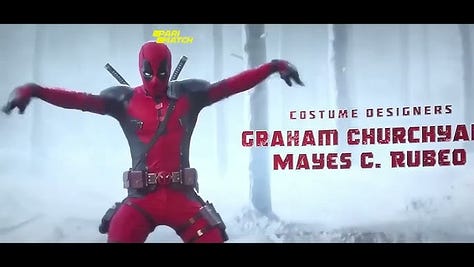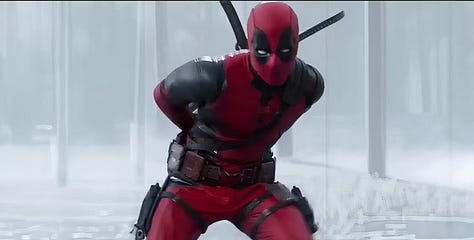I was born in 1963, which marks me as born in the waning moments of the Boomer Generation. There were a lot of us—after the trauma of World War II all over the Western world, our parents got down to business. Because our numbers were so great, many of us starting making the incorrect assumption that “our” culture was culture writ large. Because all we Boomers knew and were intimately familiar with such works of art as “Layla” by Derek and the Dominoes, “The Immigrant Song” by Led Zeppelin, and “Respect” by Aretha Franklin, we wrongly assumed that such things were universal cultural items that everyone must know forever. There was, for boomers, a kind of oblivious arrogance. At least for me.
And this was not out of some nostalgia that I feel this way. A lot of this art that is associated with the baby boom was terrible or mediocre. Think of the stupid TV shows people my age and older grew up watching on repeat: “Leave It to Beaver,” “Green Acres,” “Bewitched,” “Hogan’s Heroes.” None of these were good shows, but people my age have a powerful memories of them. As Houston new wave band the Judy’s sang in the early 80s:
My Favorite Martian
Brady Bunch
My Three Sons
Mr. Ed
These are the shows that
We know all of the words to
This song was “Rerun” and it was on their 1981 album Washarama which was very popular amongst the 18-year-old boomers who were freshmen in college in Houston that year.
Because we were raised in this generation, the Boomers’ pop culture was simply the culture we lived in. I find that for myself personally, pop culture after the mid-80s is a lot more vague. I stopped watching network TV, for the most part, so the sitcoms that are infinitely familiar to people my age or younger, I have heard of but don’t really know. I’ve never seen a full episode of “Friends,” for example, or “Modern Family.” Pop music from the late 80s until now is also a lot less familiar to me. I’m not wholly ignorant of it—but it was no longer the soundtrack of my adolescence. It didn’t feel like something I had to know about. I may not have liked Led Zeppelin when I was in high school in the 70s (it was the music of meathead jocks, as far as I was concerned), but I became weirdly knowledgeable about their music. Despite never really being a fan of theirs when the band was still together, I am filled with a nostalgic feeling when a song of theirs pops up in a soundtrack of a TV show or a movie. I don’t have that feeling at all when a song by, say, NSYNC comes on. This was made clear to me when I watched the movie Deadpool & Wolverine this summer.
In the opening scene, there is a cartoonishly bloody fight scene between Deadpool and some time stormtroopers. It is choreographed to NSYNC’s song “Bye Bye Bye,” a pop hit from 2000. In fact, in parts of the song, the indestructible superhero Deadpool is expertly miming the dance moves from the NSYNC video. I’m going to suggest that for viewers a little younger than me, this use of the NSYNC song and quoting of the video provides exactly the sense of nostalgic familiarity that a Led Zeppelin song stuck into a soundtrack does for me.



Consequently, the inclusion of some later in the 80s and 90s pop hits on Deadpool & Wolverine’s soundtrack didn’t hit me as they do Ryan Reynolds (the actor who plays Deadpool and who was born in 1976—making him the perfect age for some NSYNC nostalgia). Filmmakers of a certain expiring vintage knew that plugging in “Layla” into the soundtrack of, say, Goodfellas would hit me (and people of my generation) with exceptional emotional strength. But Martin Scorcese isn’t going to make movies forever. As a generation of filmmakers born in the 70s and later matures, the classic rock cannon will be less and less the soundtrack of our lives.
[Please consider supporting this publication by becoming a patron, and you can also support it by patronizing our online store. And one more way to support this work is to buy books through The Great God Pan is Dead’s bookstore. ]





My feeling has always been that we Gen-Xers were presented with a post-pop-culture conundrum by which we acknowledged that the commercial TV reality we'd grown up in was a lot of mass-marketed garbage, but our only option was to find a way to keep enjoying it, seeing as there were no meaningful alternatives. Hence, the marketers learned to exploit our cynicism about the badness of it all - the MST3K repackaging of dashed commercial hopes as a carnival sideshow at which we should point and laugh.
Meanwhile, because the stream of pop culture mindlessness just kept on pumping out the hits, and our cynicism about it never wavered, it left us with the feeling that nothing has effectively changed since the 1980s. More vapid pop hits and sitcoms to fill the shelf space.
And it becomes all too easy to retroactively celebrate that Zeppelin era as the last gasp of real generational turnover as if some more genuine expression of youth rebellion had broken on through to the side in the late 60s and breached the mainstream. No one in their right mind, regardless of age, could think of NSYNC in these terms. Deadpool referencing their dance moves is just a reminder that the same market forces are still working to sell you your own nostalgia for the crap they mass-marketed for you 25 years ago. And everybody loves it.